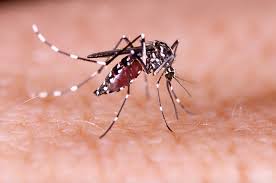Researchers have finally unraveled the cause of the mysterious illness that struck Karachi in 2021, identifying the Zika virus as the culprit. This revelation follows extensive investigations into hundreds of cases that were initially suspected to be dengue but tested negative for the virus.
Dr. Najeeha Talat Iqbal, Principal Investigator of the United World Antiviral Research Network (UWARN), disclosed to The News that researchers at Aga Khan University (AKU) in Karachi detected two cases of the Zika virus during an outbreak of an enigmatic viral illness in 2021. This finding was later confirmed through metagenomic analysis at the Gale Lab at the University of Washington in Seattle.
“During our study, we confirmed the presence of the Zika virus in Pakistan, which had not been previously detected,” stated Dr. Talat. The study examined patients with acute viral illnesses, aged between 1 and 75, from AKU’s wards, outpatient clinics, and physician referrals.
Among the 44 patients enrolled from the Arbovirus cohort, six exhibited symptoms of acute febrile illness, vomiting, and diarrhea between August and November 2021, despite testing negative for dengue.
The publication had earlier reported a dengue-like disease spreading in Karachi in November 2021, characterized by fever, reduced platelet counts, and white blood cell deficiencies. However, the patients had tested negative for the dengue virus.
The UWARN study, a multi-center investigation involving Pakistan, Senegal, South Africa, Brazil, and Taiwan, detected two single and two mixed infections of Zika and Dengue confirmed by serology and PCR in 2021 and 2022.
According to the World Health Organization (WHO), the Zika virus is transmitted through the bite of Aedes mosquitoes. While most infected individuals are asymptomatic, some may develop a rash, fever, conjunctivitis, muscle and joint pain, malaise, and headaches, typically lasting from two to seven days.
Dr. Iqbal highlighted the study’s goal to identify emerging viruses and conduct active surveillance of arboviruses in UWARN centers. She noted that AKU has been collaborating with UWARN to monitor arboviruses, including dengue, chikungunya, and other hemorrhagic viruses.
Confirming the Zika virus detection, Dr. Faisal Mehmood, Head of Infectious Disease at AKU, acknowledged the virus’s presence and circulation in Karachi.
Sindh Health Department officials also confirmed that hundreds of cases of dengue, chikungunya, and other vector-borne illnesses are reported in Karachi every week. Since January 2024, the city has recorded at least 10 fatalities due to dengue fever, with many more hospitalized with chikungunya at various health facilities.
Despite these findings, the Sindh Health Department and the National Institute of Health (NIH) officials in Islamabad have not been formally informed about the presence of the Zika virus. The NIH emphasized that no laboratory or health institution has officially reported Zika cases to them.
The city remains gripped by diseases similar to dengue and chikungunya, with ongoing concerns about unreported viral illnesses testing negative for dengue at multiple health facilities.













